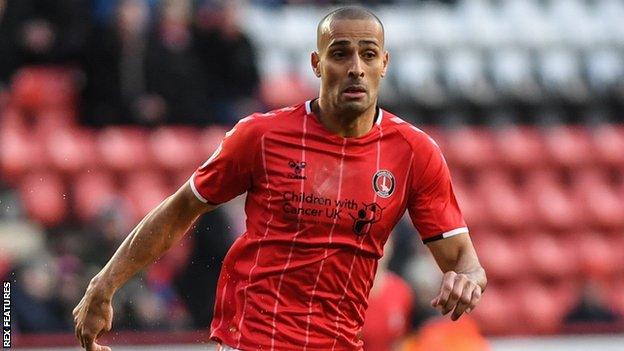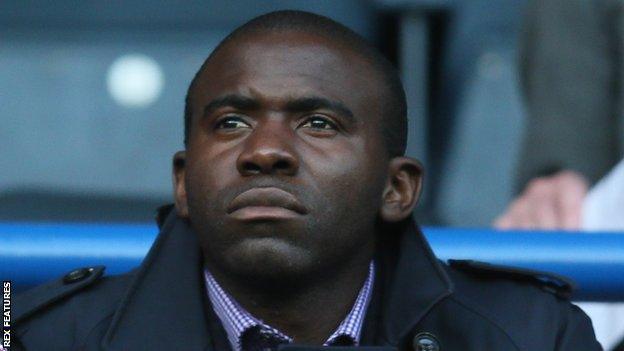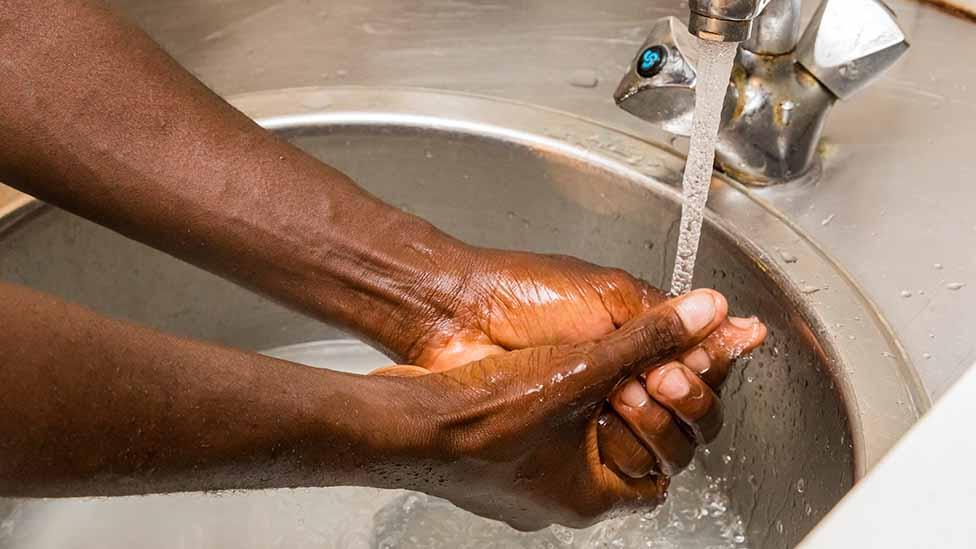Darren Pratley: Returning to football as BAME player is 'frightening'
- Published

Darren Pratley joined Charlton from Bolton Wanderers in the summer of 2018
Charlton midfielder Darren Pratley says the thought of returning to football is "a bit frightening" as BAME players are more at risk from Covid-19.
The Office for National Statistics says black men and women are nearly twice as likely to die from coronavirus as white people in England and Wales.
Pratley, whose father is Jamaican, has raised concerns.
"We've been told that BAME footballers are at higher risk, which is concerning being mixed raced," he told BBC Sport.
Championship clubs aim to return to non-contact training on 25 May and Charlton, who are in the relegation zone, are targeting 16 June for matches to resume.
Former Swansea and Bolton midfielder Pratley, 35, added: "I know a lot of people from my dad's side have struggled with diabetes and high blood pressure, which is an underlying issue that a lot of them and others probably didn't know that they had.
"This could be something that if infected by one of the players who hasn't been tested, could be passed back to them if they are living in the same household."
Former Jamaica midfielder Jobi McAnuff, player-coach at Leyton Orient, said on Monday that he does not think "safety can be guaranteed in the current climate" with the global death toll now past 300,000.
British Heart Foundation research shows that people with an African or African Caribbean background might be at higher risk of developing high blood pressure (hypertension) and having a stroke.
Type 2 diabetes is also more commonly found than in the rest of the population.
Testing costs concern
Pratley is also concerned about the cost of coronavirus safety measures after Charlton head coach Lee Bowyer said the club "can't afford testing, especially twice a week" under the new protocols.
Electrocardiogram (ECG) tests are also used within sport to detect the heart's rhythm and electrical activity. These signals are recorded by a machine and looked at by a doctor to see if they are unusual.
"When we have the ECGs done every season, normally black players will have a second test because of an irregular heart rate," Pratley explained.
"I don't think we can afford to even do the ECG testing at the club as well. So that's a big thing that people want to know.
"For example, I was playing with Fabrice Muamba in the game he collapsed. Can you imagine if this virus was going around at that time, and the same was to happen? Without testing people now and doing a proper check, we could end up with something terrible happening."
Muamba suffered a cardiac arrest during Bolton Wanderers' FA Cup quarter-final tie against Tottenham in March 2012.

Fabrice Muamba retired from playing five months after suffering a cardiac arrest on the pitch
Tackling in training restriction unrealistic
Under the English Football League's 'return to training' guidance, all equipment will be disinfected, communal areas such as changing rooms and gyms will be closed, and no tackling will be allowed.
Pratley believes "there's no point in playing" if tackling is not permitted and cannot see players sticking to the rules because of their competitive natures.
"I'm worried because one of our coaches had the virus and he said it's the worst thing that's ever happened to him and he wouldn't wish it upon anyone," he said.
"No one knows what effect the virus is going to have on you afterwards. Football isn't going to last forever. I want to be able to be able to live a normal life and run around with my daughter in the garden.
"It's going to have a massive impact. I want to get back, but it has to be safe for everyone. That's the main thing. If you can't do the tests, then I can't see it [football] getting back personally."
- Attribution
- Published19 June 2020
